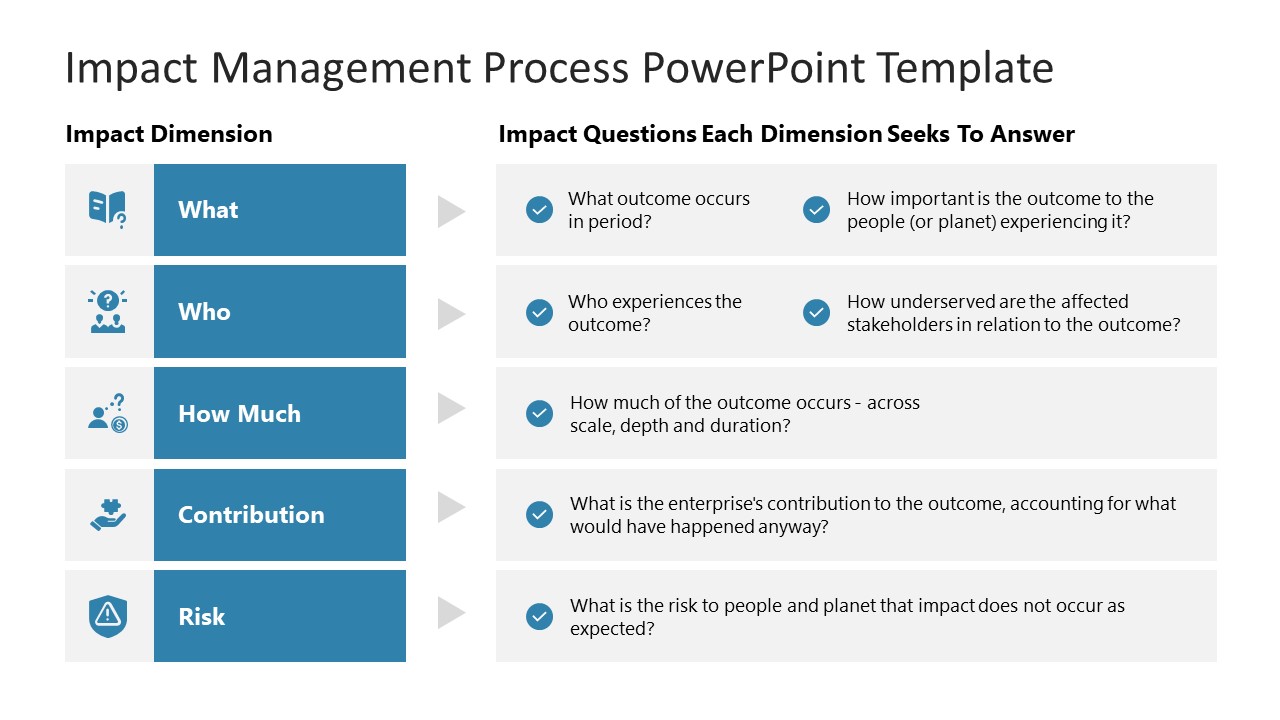The Crucial Role Of Middle Management: Value And Impact

Table of Contents
Bridging the Gap Between Leadership and Employees
Middle managers serve as the critical bridge, translating high-level strategic goals into actionable plans for their teams. Without effective middle management, the strategic vision remains just that – a vision, disconnected from the reality of daily operations.
Translating Strategic Vision into Actionable Plans
This crucial function requires a deep understanding of both the overall organizational strategy and the capabilities of individual team members. Middle managers break down complex, large-scale projects into smaller, manageable tasks, ensuring clarity and focus.
- Breaking down large projects: A large-scale marketing campaign, for example, might be broken down into content creation, social media engagement, email marketing, and analytics tracking – each with its own timeline and team responsibilities.
- Setting clear deadlines and milestones: Establishing clear deadlines and measurable milestones keeps teams focused and accountable, ensuring progress aligns with the overall project goals.
- Allocating resources effectively: Middle managers ensure that the right resources (budget, personnel, technology) are allocated to each task, optimizing efficiency and minimizing bottlenecks.
Effective strategic implementation hinges on this ability to translate vision into action, fostering operational excellence and driving project success. This requires strong project management skills and adept resource allocation.
Fostering Communication and Collaboration
Clear, two-way communication is essential for organizational success. Middle managers are responsible for facilitating communication between upper management and frontline employees, ensuring that information flows smoothly in both directions.
- Regular team meetings: Regular meetings provide a platform for updates, feedback, and open discussion, fostering transparency and team cohesion.
- Open-door policies: Creating an environment where employees feel comfortable approaching their managers with questions and concerns encourages open communication and strengthens the manager-employee relationship.
- Feedback mechanisms: Implementing systems for regular feedback (e.g., performance reviews, 360-degree feedback) ensures that both upward and downward communication channels are open and functioning effectively.
- Team-building activities: Engaging team-building activities improve team dynamics, enhancing collaboration and boosting morale.
- Cross-functional projects: Involving teams from different departments in collaborative projects enhances communication and understanding across organizational silos.
Strong communication strategies are vital for employee engagement, ultimately contributing to higher productivity and job satisfaction.
Driving Team Performance and Development
Middle managers are not just taskmasters; they are leaders, mentors, and motivators. Their role in driving team performance and fostering individual development is crucial for organizational growth.
Motivating and Mentoring Team Members
Motivating and supporting their teams requires a nuanced understanding of individual needs and aspirations. Effective middle managers employ various leadership styles, adapting their approach to suit different situations and personalities.
- Leadership styles: From transformational leadership, inspiring vision and purpose, to servant leadership, prioritizing team needs, adapting the style is key to maximizing team performance.
- Mentorship programs: Formal or informal mentorship programs help develop team members' skills and advance their careers, creating a culture of growth and support.
- Performance management strategies: Implementing effective performance management systems, including regular feedback and performance reviews, provides guidance and ensures accountability.
- Constructive feedback: Delivering constructive criticism and praise is crucial for team development and motivation.
- Recognizing accomplishments: Acknowledging and rewarding good work boosts morale and reinforces positive behaviors.
- Addressing employee concerns: Openly addressing and resolving employee concerns demonstrates empathy and fosters trust.
This commitment to employee development directly translates into increased productivity and retention.
Fostering a Positive and Productive Work Environment
Middle managers are instrumental in shaping the work culture within their teams. Creating a positive and productive work environment is essential for attracting and retaining top talent.
- Supportive team environment: A supportive team culture encourages collaboration, open communication, and mutual respect.
- Promoting work-life balance: Supporting a healthy work-life balance reduces stress and increases employee well-being.
- Conflict resolution strategies: Equipping middle managers with effective conflict resolution techniques prevents disputes from escalating and disrupting productivity.
- Recognizing and rewarding good work: Regularly recognizing and rewarding achievements strengthens team morale and enhances performance.
- Fostering team cohesion: Building strong team relationships through social events or team-building exercises promotes collaboration and camaraderie.
A positive work environment directly impacts employee satisfaction, reducing turnover and increasing productivity.
Contributing to Organizational Success
Effective middle management is not just about team performance; it's about contributing directly to the overall success of the organization.
Ensuring Operational Efficiency and Effectiveness
Middle managers play a critical role in ensuring operational efficiency and effectiveness. Their understanding of day-to-day operations allows them to identify and address bottlenecks, streamlining workflows and enhancing productivity.
- Process optimization: Identifying and improving inefficient processes minimizes waste and enhances productivity.
- Identifying and addressing bottlenecks: Pinpointing and removing obstacles that impede workflow increases overall efficiency.
- Implementing best practices: Adopting industry best practices ensures that the organization operates at peak performance.
- Streamlining workflows: Optimizing processes and eliminating redundancies enhances efficiency and reduces costs.
- Using technology to enhance efficiency: Leveraging technology to automate tasks and improve communication boosts productivity.
These contributions directly translate into efficiency gains, cost savings, and improved organizational performance.
Identifying and Addressing Challenges Proactively
Proactive identification and resolution of challenges is a critical function of middle management. Their close proximity to day-to-day operations enables them to identify potential problems early on, before they escalate into major issues.
- Risk management: Identifying and assessing potential risks allows for proactive mitigation strategies, minimizing negative impact on the organization.
- Problem-solving skills: Effective problem-solving skills are essential for addressing challenges and finding efficient solutions.
- Proactive approach to challenges: Addressing issues before they become significant problems prevents disruptions and minimizes losses.
- Identifying areas for improvement: Continuously identifying areas for improvement ensures ongoing organizational development and adaptation.
- Reporting issues to upper management: Effectively communicating challenges to upper management ensures that appropriate resources are allocated to address critical issues.
This proactive approach to change management is crucial for organizational agility and adaptability.
Conclusion
In conclusion, the crucial role of middle management in achieving organizational success cannot be overstated. From bridging the communication gap between leadership and employees to driving team performance and ensuring operational efficiency, middle managers are the linchpin of organizational effectiveness. Effective middle management strategies directly impact employee engagement, organizational value creation, and overall success. Investing in your middle management team through training, mentorship, and support is not an expense, but a strategic investment in your organization's future. Develop effective middle management strategies, and unlock the full potential of your middle management team to achieve your organizational goals. Invest in your middle management; invest in your future.

Featured Posts
-
 Enhanced Gaming Sony Details Ps 5 Pro Upgrades
May 08, 2025
Enhanced Gaming Sony Details Ps 5 Pro Upgrades
May 08, 2025 -
 Anchor Brewing Companys Closure A Legacy In Beer Brewing Ends
May 08, 2025
Anchor Brewing Companys Closure A Legacy In Beer Brewing Ends
May 08, 2025 -
 Colin Cowherd Takes Aim At Jayson Tatum Post Celtics Game 1
May 08, 2025
Colin Cowherd Takes Aim At Jayson Tatum Post Celtics Game 1
May 08, 2025 -
 2 1 0 1
May 08, 2025
2 1 0 1
May 08, 2025 -
 Xrp Price Prediction 3 Reasons For Potential Xrp Surge And Remittix Ico Success
May 08, 2025
Xrp Price Prediction 3 Reasons For Potential Xrp Surge And Remittix Ico Success
May 08, 2025
